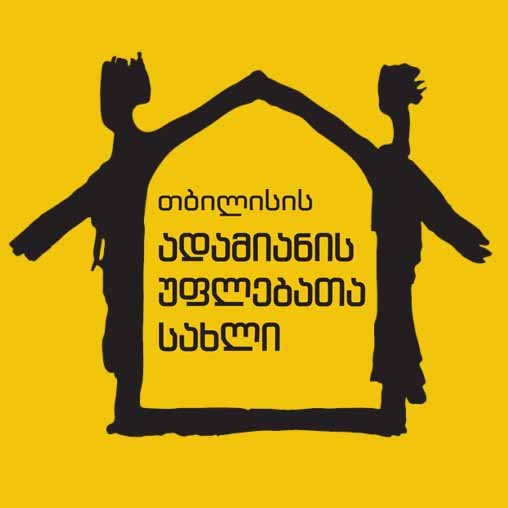News
HRC met the attorneys of the Akhmeta municipality mayor
21.03.2022

Font size
Humanrights.ge
On March 15, the HRC representatives met the public servants of the Akhmeta municipality in Akhmeta. The head of the administration at the Akhmeta municipality city hall and attorneys of the municipality mayor in the Akhmeta administrative unit and municipality villages attended the meeting. Among them were the attorneys of the villages, which are inhabited by ethnic Ossetian citizens.
HRC executive director Aleko Tskitishvili presented the report prepared by Human Rights Center – „Legal Analysis of the Process of Property Restitution and Citizenship Restoration to Ethnic Ossetians Affected from the Conflict.” The report outlines two significant problems related to the process of granting Georgian citizenship to ethnic Ossetians and to the failure to enforce the Law on Property Restitution and Compensations of the Persons Affected in the Territory of Georgia from the Conflict held in the Former South Ossetian Autonomous District, adopted by the Parliament of Georgia in 2006.
To ascertain some issues and to obtain necessary certificates needed for the proceedings, during the implementation of the project, HRC requested public information from several municipalities of Kakheti. According to the information received from the Mayor’s Office of Akhmeta Municipality, in 1989-1992 (and not only in this period) the migration of ethnic Ossetian population from Akhmeta Municipality mainly to Vladikavkaz, Russia, had a regular character. Most of them voluntarily sold houses they owned, but the part of them who still own houses regularly visit Georgia up to these days. In Akhmeta Municipality (namely in villages: Kutsakhta, Koreti, Tsinubani, Dumasturi, Kvemo Khalatsani, Chachkhriala, Sabue, Argokhi, Pichkhovani, Akhalsheni, Kojori, the fields of Akhshani, Arashenda) lived a total of 823 ethnic Ossetian families, from which 471 families sold residential houses and left the municipality. Currently, 352 families live in the municipality.
During the meeting, the deputy executive director of HRC Nino Tlashadze stated that it is important that the municipalities collected, processed and analyzed the statistic information. Unfortunately, some municipalities, where the similar migration processes happened in 1990s, do not have the mentioned statistics and respectively cannot issue any public information.
The mayor’s attorneys spoke about the impact of the 1990s conflicts on the villages inhabited by ethnic Ossetian citizens in Akhmeta municipality. During and after the conflict, some villages became completely or partly extinct. After a while, one part of the migrated Ossetian people returned to their homes but another part continues living in the Russian Federation but keeps links with Georgia and relatives living here.
Human Rights Center believes that outcomes of the armed conflicts of 1990s in the territory of the former Autonomous Oblast of South Ossetia still influence the life of people living not only in the occupied territory but also in other regions of Georgia. The stereotypes and phobias are still very strong. The needs and loss of ethnic Ossetian people are not studied yet.
As it was underlined during the meeting, there are some problems in relation with the land registration process in Akhmeta municipality too. However, these problems are common for all citizens regardless their ethnic background. The state tries to eradicate these problems but the registration process is still dragged out and complicated.
HRC believes that the State shall give priorities to ethnic Ossetian citizens, who became victims of the last century ethnic conflict, and register their lands as properties under a simplified procedure.
On March 15, the HRC representatives met the public servants of the Akhmeta municipality in Akhmeta. The head of the administration at the Akhmeta municipality city hall and attorneys of the municipality mayor in the Akhmeta administrative unit and municipality villages attended the meeting. Among them were the attorneys of the villages, which are inhabited by ethnic Ossetian citizens.
HRC executive director Aleko Tskitishvili presented the report prepared by Human Rights Center – „Legal Analysis of the Process of Property Restitution and Citizenship Restoration to Ethnic Ossetians Affected from the Conflict.” The report outlines two significant problems related to the process of granting Georgian citizenship to ethnic Ossetians and to the failure to enforce the Law on Property Restitution and Compensations of the Persons Affected in the Territory of Georgia from the Conflict held in the Former South Ossetian Autonomous District, adopted by the Parliament of Georgia in 2006.
To ascertain some issues and to obtain necessary certificates needed for the proceedings, during the implementation of the project, HRC requested public information from several municipalities of Kakheti. According to the information received from the Mayor’s Office of Akhmeta Municipality, in 1989-1992 (and not only in this period) the migration of ethnic Ossetian population from Akhmeta Municipality mainly to Vladikavkaz, Russia, had a regular character. Most of them voluntarily sold houses they owned, but the part of them who still own houses regularly visit Georgia up to these days. In Akhmeta Municipality (namely in villages: Kutsakhta, Koreti, Tsinubani, Dumasturi, Kvemo Khalatsani, Chachkhriala, Sabue, Argokhi, Pichkhovani, Akhalsheni, Kojori, the fields of Akhshani, Arashenda) lived a total of 823 ethnic Ossetian families, from which 471 families sold residential houses and left the municipality. Currently, 352 families live in the municipality.
During the meeting, the deputy executive director of HRC Nino Tlashadze stated that it is important that the municipalities collected, processed and analyzed the statistic information. Unfortunately, some municipalities, where the similar migration processes happened in 1990s, do not have the mentioned statistics and respectively cannot issue any public information.
The mayor’s attorneys spoke about the impact of the 1990s conflicts on the villages inhabited by ethnic Ossetian citizens in Akhmeta municipality. During and after the conflict, some villages became completely or partly extinct. After a while, one part of the migrated Ossetian people returned to their homes but another part continues living in the Russian Federation but keeps links with Georgia and relatives living here.
Human Rights Center believes that outcomes of the armed conflicts of 1990s in the territory of the former Autonomous Oblast of South Ossetia still influence the life of people living not only in the occupied territory but also in other regions of Georgia. The stereotypes and phobias are still very strong. The needs and loss of ethnic Ossetian people are not studied yet.
As it was underlined during the meeting, there are some problems in relation with the land registration process in Akhmeta municipality too. However, these problems are common for all citizens regardless their ethnic background. The state tries to eradicate these problems but the registration process is still dragged out and complicated.
HRC believes that the State shall give priorities to ethnic Ossetian citizens, who became victims of the last century ethnic conflict, and register their lands as properties under a simplified procedure.
News
20.03.2025
Statement of the Human Rights House Tbilisi and its Member Organizations about the Freezing of the Accounts of the Human Rights House Tbilisi and the Investigation Launched by the General Prosecutor’s Office of 'Georgian Dream'
06.03.2025




